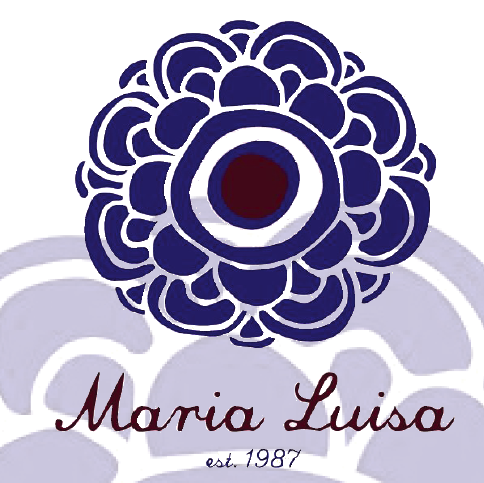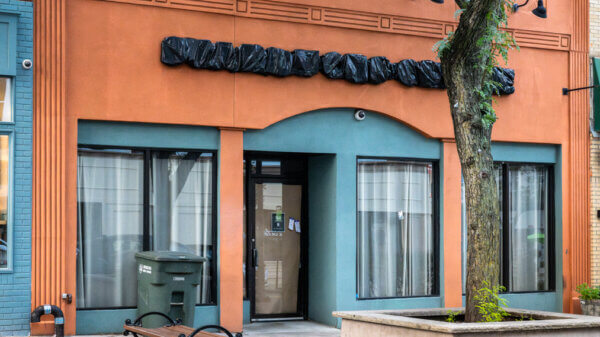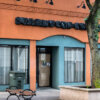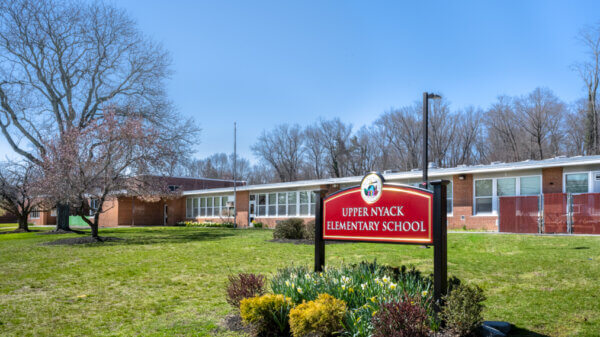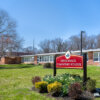by Susan Hellauer
 Earth Matters focuses on conservation, sustainability, recycling and healthy living. This weekly series is brought to you by Maria Luisa Boutique, Dying To Bloom, and Strawtown Studio.
Earth Matters focuses on conservation, sustainability, recycling and healthy living. This weekly series is brought to you by Maria Luisa Boutique, Dying To Bloom, and Strawtown Studio.If Earth Matters to you, sign up for our mailing list and get the next installment delivered right to your inbox.
There was a time, and not that long ago, when the Hudson River was a go-to dumping ground for poisonous industrial and municipal waste. Back in the late 1940s, Nyack resident Myra Starr and her friends had no choice but to swim out to their sailboat when their leaky old dinghy would go missing. The boat was moored off the Grand-View-on-Hudson Town Hall, where an outflow pipe ran down to the river, discharging raw sewage into the Hudson. The girls dove in anyway, quickly getting out to cleaner mid-river water. “We all just took it for granted that sewage, factory waste, everything had to go into the river. Where else was it going to go?”
Since the 1960s, environmental watchdog groups, like Riverkeeper, Scenic Hudson, and Hudson Clearwater, have successfully fought to stop these practices, getting both corporations and government to clean up their acts. New York State’s 1965 Pure Waters Bond Act, the first of its kind in the nation, sought to end the dumping of raw or insufficiently processed sewage by subsidizing treatment plants—like Orangetown’s, which came on line in 1968.
But there’s one vexing problem that still adds contamination from human waste to the Hudson, especially after heavy rain. (And our warming atmosphere promises much more of that around here in the future.) Sanitary Sewer Overflows (SSOs) can overwhelm an aging sewer system, spewing a contaminated sewage-stormwater combo through overflow outlets into the river. Even in a system like Rockland County’s, which keeps stormwater and sewage separated, downpours can cause big problems.

Text message from NY-Alert advising of a sewage overflow near the Nyack boat launch on August 11, after heavy rains.
Sewage Pollution: Your “Right to Know”
In among the eleven area flood advisories on my phone on the morning of August 11 was the most recent notification of a sewage overflow at Nyack’s Memorial Park boat launch and fishing pier. Why did I get that notice? In 2012, Riverkeeper led a successful effort to pass the Sewage Pollution Right to Know Law. As a result, New Yorkers can sign up to be notified of local sewage overflows. It’s useful info for those who use the water for recreation. And—just as important—it helps shine some light on this serious issue, which can in turn put pressure on officials to address the problem.
Nyack’s sewer system is maintained and operated by the Town of Orangetown. So, for more information about recent sewage overflows here in Nyack, Earth Matters spoke with Michael Weber, Chief Operator of the Town of Orangetown Department of Environmental Management and Engineering.

Nyack’s popular fishing pier in Memorial Park is just yards away from the pumping station’s overflow outlet at the Nyack boat launch. Those fishing and boating won’t know about sewage overflows unless they sign up to receive them via NY-Alerts (see “Learn more” below). Photo: Susan Hellauer
EM: Where were these contaminated releases, exactly, and what was in them?
Michael Weber: The most recent sewage releases have been at the Nyack Pump Station [at the foot of Spear Street near the marina and boat launch]. They have been predominantly rain water associated with several high intensity storms that have come through the area.
Why does this happen?
The sewage that is released is due to surges in flow that come into the sewage pumping station. Many times, the flow will also bring in a surge of “flushable wipes” and grease which can clog the screening equipment and pumps in the sanitary sewage system. This can cause a backup of flow before the pump station inlet.

Sewer slip lining being installed in Nyack. Slip linings stop stormwater from infiltrating the sanitary sewer system and causing overflows. Photo courtesy Town of Orangetown Dept. of Environmental Management and Engineering
What’s being done by Orangetown to reduce or eliminate these kinds of releases?
The Town of Orangetown is working to repair lines that have been identified for infiltration—where groundwater enters the sanitary sewer system due to defects in the sanitary lines. And it’s investigating possible locations for inflow—inappropriate connections that have been made to the sanitary sewer system. We have completed a comprehensive lining project and have a major open cut-and-replace scheduled to help reduce the amount of infiltration that affects the system.
What can residents do to reduce these releases?
Residents can help to reduce the impact of overflow-causing events in several ways. The most important way is to ensure that they do not have rain gutters and leaders connected to the sewer system, and that they do not have inappropriate connections to the sewer system, such as basement sump pumps which are not permitted to be connected to the sanitary sewer system. Additionally, flushable wipes are given that name because they can go down the toilet. These wipes are not easily broken down and account for many of the blockages that we see today. The wipes often braid together to form major clogs that cause overflows. Grease is another problem. Oil and grease should not be flushed or poured down into the sewer lines. The oils and grease solidify in the lines causing blockages.

Nyack Sewer Map, prepared by Sherwood Engineers for the village’s 2016 Comprehensive Plan, page 52 figure 9. Note the sewage overflow outfalls into the Hudson River at the boat launch, adjacent to Memorial Park, and at the foot of Ackerman Street at Gedney Street, at the Hook Mountain Boat Club. The pump stations move the sewage to the Orangetown Treatment Plant.
Is there any evidence that the number and size of these releases is being reduced by work that has been done or is being done?
The number of overflows is down significantly and can be directly attributed to the lining work that has been done throughout Nyack. We expect that the open cut-and-replace of heavily damaged lines will correct the infiltration issue greatly. The best evidence that our efforts are working is that we have reduced the number of spills from an average of 7-12 spills per year to 1-3 spills per year.
If we’re already avoiding those “flushable wipes” and have no sump pumps or downspouts connected to the sewer, are there any further measures we can take?
People can take advantage of the newer low flow technology that is on the market. There are dual flush toilets and low flow shower heads that can not only reduce impact on the sewer system, but can save potable water and reduce the cost of water to consumers.
Learn more:
- For more on the causes and effects of sewage contamination on the Hudson River, see the Riverkeeper Sewage Contamination campaign pages.
- “On a Swimmable Hudson” (8/6/16, Nyack News and Views)
- Celebrating 50th of Pure Waters Act (Spring 2015, NY State Department of Environmental Conservation)
- Sign up for Sewage Discharge Notifications via NY-Alert
- “Flushable” Wipes Creating Expensive Problem at Local Sewage Plant (3/14/18, WABC Action News, Philadelphia)
- Riverkeeper keeps tabs on fecal contamination of the Hudson with regular testing up and down the river. Here are the latest enterococcal (fecal indicator) and rainfall amounts at the Nyack Boat Launch.
- Most residents of the Nyacks get their drinking water from the Nyack Water Department. But customers of Suez Water in Orange and Rockland Counties can take advantage of substantial rebates on water-saving devices and appliances at Suez’s residential rebate web page.

Main sewage pumping station at the foot of Spear Street. Overflows at this station are sent to an outfall pipe in the Hudson River off the nearby boat launch. There is a smaller pump station at the foot of Ackerman Place at Gedney Street. Photo: Susan Hellauer
Email Earth Matters
Read Earth Matters every Wednesday on Nyack News And Views, or sign up for the Earth Matters mailing list.
Earth Matters, a weekly feature that focuses on conservation, sustainability, recycling and healthy living, is sponsored by Maria Luisa Boutique, Dying to Bloom, and Strawtown Studio.


